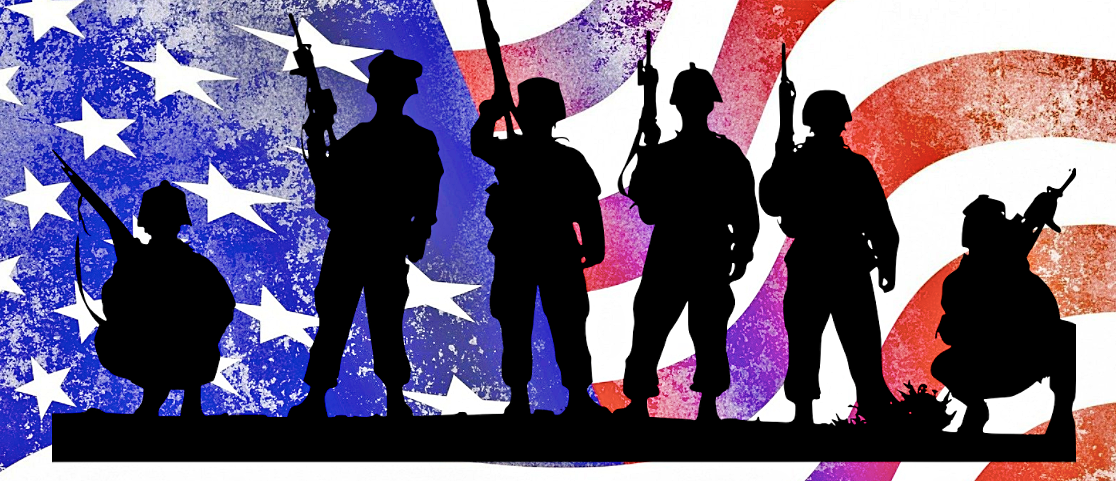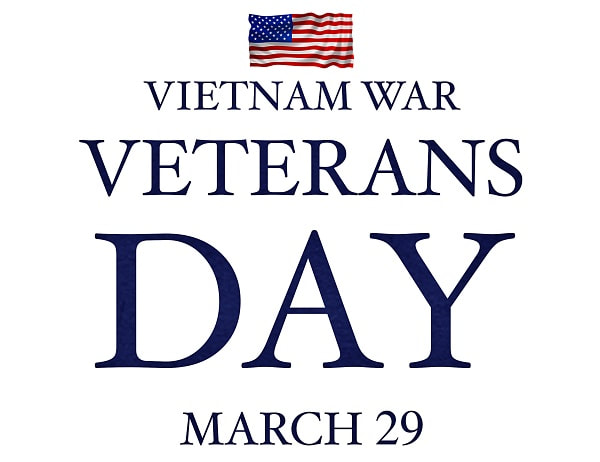March 28, 2023
Vietnam Veterans recognized on March 29
By Gary L. Noller
Special to the Prophet
The United States and other countries signed the Paris Peace Accords on Jan. 27, 1973. The official name of the action was “An Agreement Ending the War and Restoring Peace in Vietnam.”
Key conditions of the agreement included an immediate cease-fire throughout Vietnam. The United States agreed to dismantle all of its military bases and remove all combat troops from Vietnam. North Vietnam agreed to release all American prisoners of war. This was to be done within 60 days.
The last American combat troops left Vietnam on March 29, 1973. American prisoners came home although the fate of all missing is still not known to this day.
The most difficult year for the United States in the Vietnam War occurred in 1968. About half a million American military members were in-country. It was the worst year for American casualties with 16,899 making the ultimate sacrifice at the call of their country.
At the end of March 1968, it became apparent to President Lyndon Johnson that the course in Vietnam needed to be changed. He declared on national television that he was dropping out of the race for another term. The Paris Peace Talks would soon follow.
Richard Nixon ran a presidential campaign in 1968 that included a promise of a plan to end the war in Vietnam. He took office in January 1969, and the gradual withdrawal of American troops soon followed.
But the peace negotiations dragged on for months and then years. In 1972, the number of Americans killed in the Vietnam War was down to 759. Most American combat troops were already out of Vietnam by May 1972 as the plan of “Vietnamization” took hold.
In December 1972, the United States grew ever more weary of the slow pace of the Paris negotiations. Nixon ordered a bombing campaign over North Vietnam that lasted several days. The attacks were relentless with hundreds of sorties flown by B-52 aircraft and other bombers. Due to the timing of the attacks they were commonly known as the Christmas bombings.
All parties accepted the terms of the negotiated peace within days of the end of the Christmas bombings. Almost five years had lapsed from Johnson's announcement in March 1968 until the end of America's combat role in Vietnam in March 1973. Thousands died on all sides during the Paris talks.
At noon on March 29, a brief ceremony will take place on the Kerr County courthouse grounds to mark National Vietnam War Veterans Day. This date is set aside to honor the men and women who served in American military forces during the 13-year Vietnam War.
Elected local officials will deliver proclamations that detail the reasons for this special day. Although the ceremony is expected to be short it will still have significant meaning for those who served in the Vietnam War and who came home to little or no recognition.
If such a ceremony was held in my hometown when I came home from Vietnam in 1971, I probably would not have been in attendance. I was full of resentment and very bitter and just wanted to be left alone. This was the case with many Vietnam veterans. We wanted to move on with our lives and forget all about the Vietnam War.
Our attitudes have generally improved over the years. But it is possible that on the March 29 ceremony there will be a Vietnam veteran who will for the first time receive an official welcome home. And it will be well deserved.
Key conditions of the agreement included an immediate cease-fire throughout Vietnam. The United States agreed to dismantle all of its military bases and remove all combat troops from Vietnam. North Vietnam agreed to release all American prisoners of war. This was to be done within 60 days.
The last American combat troops left Vietnam on March 29, 1973. American prisoners came home although the fate of all missing is still not known to this day.
The most difficult year for the United States in the Vietnam War occurred in 1968. About half a million American military members were in-country. It was the worst year for American casualties with 16,899 making the ultimate sacrifice at the call of their country.
At the end of March 1968, it became apparent to President Lyndon Johnson that the course in Vietnam needed to be changed. He declared on national television that he was dropping out of the race for another term. The Paris Peace Talks would soon follow.
Richard Nixon ran a presidential campaign in 1968 that included a promise of a plan to end the war in Vietnam. He took office in January 1969, and the gradual withdrawal of American troops soon followed.
But the peace negotiations dragged on for months and then years. In 1972, the number of Americans killed in the Vietnam War was down to 759. Most American combat troops were already out of Vietnam by May 1972 as the plan of “Vietnamization” took hold.
In December 1972, the United States grew ever more weary of the slow pace of the Paris negotiations. Nixon ordered a bombing campaign over North Vietnam that lasted several days. The attacks were relentless with hundreds of sorties flown by B-52 aircraft and other bombers. Due to the timing of the attacks they were commonly known as the Christmas bombings.
All parties accepted the terms of the negotiated peace within days of the end of the Christmas bombings. Almost five years had lapsed from Johnson's announcement in March 1968 until the end of America's combat role in Vietnam in March 1973. Thousands died on all sides during the Paris talks.
At noon on March 29, a brief ceremony will take place on the Kerr County courthouse grounds to mark National Vietnam War Veterans Day. This date is set aside to honor the men and women who served in American military forces during the 13-year Vietnam War.
Elected local officials will deliver proclamations that detail the reasons for this special day. Although the ceremony is expected to be short it will still have significant meaning for those who served in the Vietnam War and who came home to little or no recognition.
If such a ceremony was held in my hometown when I came home from Vietnam in 1971, I probably would not have been in attendance. I was full of resentment and very bitter and just wanted to be left alone. This was the case with many Vietnam veterans. We wanted to move on with our lives and forget all about the Vietnam War.
Our attitudes have generally improved over the years. But it is possible that on the March 29 ceremony there will be a Vietnam veteran who will for the first time receive an official welcome home. And it will be well deserved.


